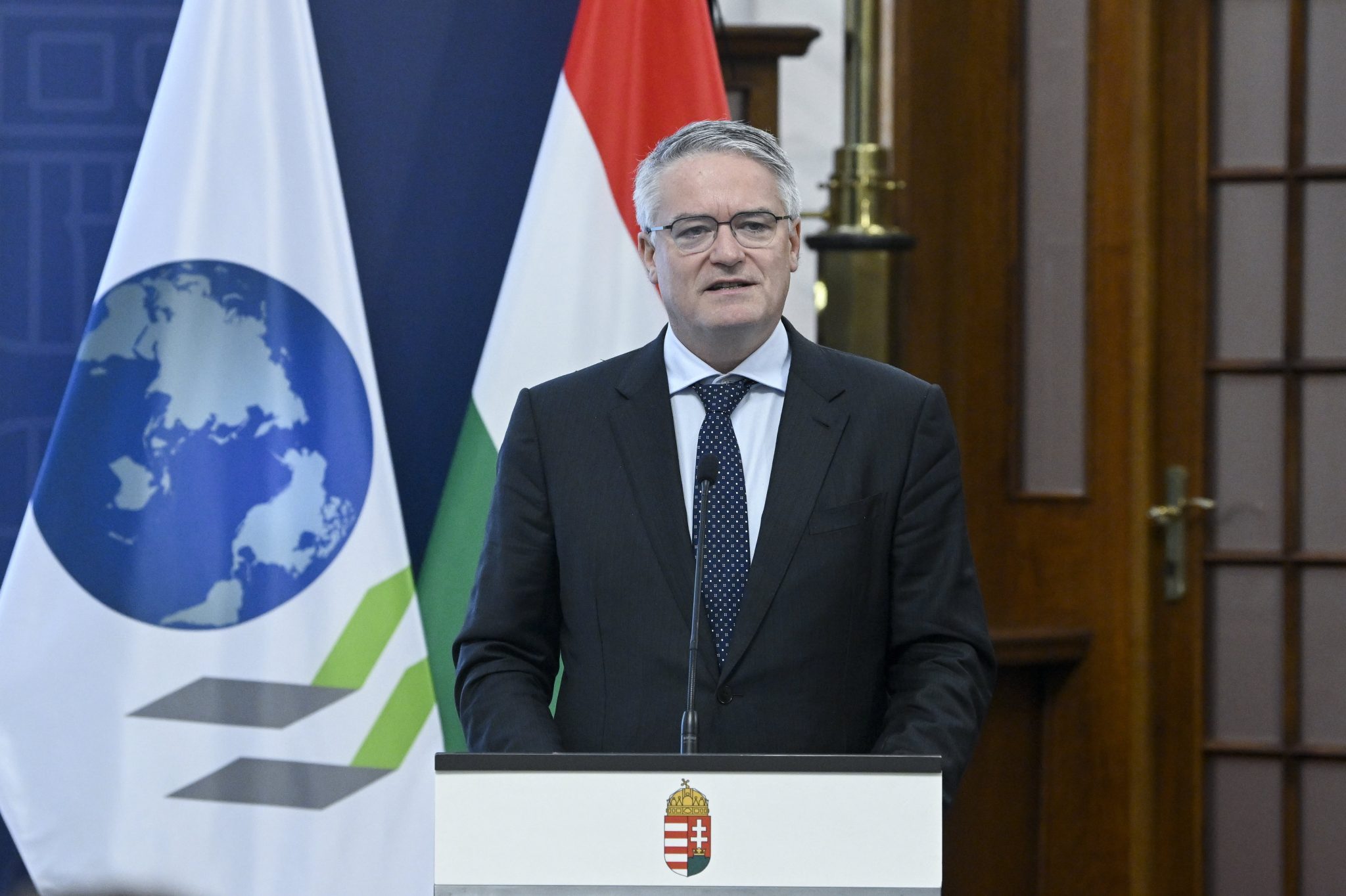Secretary-General of OECD, Mathias Cormann
The Hungarian economy is poised to return to a sustainable growth trajectory this year, the Minister of Finance stated during the presentation of the OECD (Organization for Economic Cooperation and Development) country study on Hungary.
Minister Mihály Varga emphasized that the OECD, in alignment with the government’s assessment and international rating agencies, foresees the Hungarian economy outperforming the EU average in the forthcoming years.
He added that the OECD country study projects economic growth of 2.4 percent this year and 2.8 percent next year, closely mirroring the government’s expectations.
The economy has already surpassed pre-pandemic levels by five percent, compared to an average of 3.5 percent in other EU Member States. There is mutual agreement between the government and the OECD regarding the necessity to reduce the budget deficit and improve balance sheet indicators.
Minister Varga also mentioned the potential for Hungary to reduce its public debt in the forthcoming years to lower interest expenditure and capitalize on the green transition by assuming a leading role in energy production and storage, as outlined by the government.
Minister Varga also noted the professional and well-founded nature of the OECD’s report on Hungary, indicating its congruence with the government’s assessment due to the OECD’s familiarity with Hungary’s economic history after the regime change in 1989, and its unique characteristics compared to other international organizations.
He stressed,
The nearly 130-page document provides an unbiased picture of the situation, and its recommendations will contribute to further progress.”
During the Secretary-General of the OECD, Mathias Cormann’s visit to Hungary, it was acknowledged that Hungary has successfully developed an export-oriented economy, with marked improvements in employment, transitioning from being one of the weakest countries 15 years ago to one of the strongest today.
The Secretary-General commended the decrease in inflation but cautioned against underestimating risks, advocating for the Hungarian National Bank’s (MNB) readiness to take appropriate measures if necessary.
According to OECD calculations, real wages and export volumes in Hungary are expected to increase, sustaining economic recovery.
Mr. Cormann emphasized, “as an export-oriented country, Hungary must prioritize increasing productivity, competitiveness, and technological penetration, along with expanding its transport and telecommunications infrastructure.”
The Secretary-General anticipates significant outcomes from the government’s anti-corruption measures and calls for targeted actions to ensure equal opportunities. He also urged an acceleration of the green transition and optimal utilization of education’s potential to further economic development.

